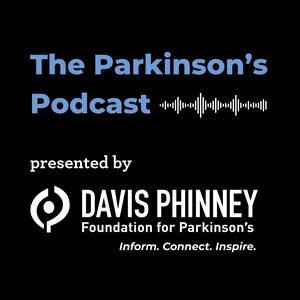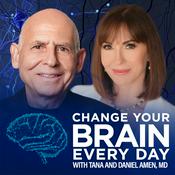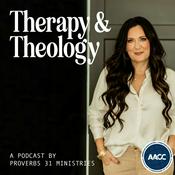154 episodes
Sexual Health, Levodopa Myths, Hypoxia Research, and More with Dr. Bas Bloem, Pt 2
15/2/2026 | 29 mins.Learn more about Parkinson's and find support: https://dpf.org
In part two, Dr. Bas Bloem and Polly Dawkins tackle some of the most pressing topics in the Parkinson's community. They address sexual health, levodopa phobia head-on, share breakthrough research on intermittent hypoxia, and discuss the overlooked connection between gut health and medication effectiveness. This episode offers both cutting-edge science and practical guidance for living well with Parkinson's.
Sign up for updates on webinars, events, and resources for the Parkinson's community: https://dpf.org/newsletter-signup
Podcast Produced by Sia Urroz, Davis Phinney FoundationHolistic Approach to Parkinson's: Exercise, Supplements, and More With Dr. Bas Bloem, Pt. 1
11/2/2026 | 26 mins.Learn more about Parkinson's and find support: https://dpf.org
In this first part of our two-part conversation, Dr. Bas Bloem and Polly Dawkins discuss why a holistic approach to Parkinson's care matters. They explore the latest evidence on exercise as a disease-modifying treatment, the critical role of supplements and nutrition, and how optimizing every aspect of your life—from sleep to stress management—can transform your quality of life. Whether you're newly diagnosed or living with Parkinson's for years, this conversation offers practical, evidence-based strategies for taking control of your care.
Sign up for updates on webinars, events, and resources for the Parkinson's community: https://dpf.org/newsletter-signup
Podcast Produced by Sia Urroz, Davis Phinney Foundation- In this episode of the Parkinson's Podcast Unfiltered, the group is joined by a special guest to respond to a listener's question about how their relationship with Parkinson's has changed over time. Together, they talk through the different ways they have named and understood Parkinson's since diagnosis, including ideas of fighting, endurance, acceptance, and daily negotiation.
The conversation moves between personal stories, practical coping strategies, and reflections on how identity, energy, and priorities shift as symptoms progress. Rather than settling on one way of framing Parkinson's, the episode explores how those frames evolve.
Sign up for updates on webinars, events, and resources for the Parkinson's community: https://dpf.org/newsletter-signup
Learn more about the Davis Phinney Foundation for Parkinsons's: https://dpf.org - In this episode of the Parkinson's Podcast, Chris Krueger talks with a clinical research team from University of Toronto about how the clinical trial process works, how participants can have the best experience in a trial, and why a team approach to trials is necessary and good.
In this episode, you'll hear from Dr. Alfonso Fasano, Dr. Arturo Abundes Corona, Sara Naghdlou, a clinical research coordinator with a background in biomedical engineering; and Yu-Yan Poon, a registered nurse who supports trials at the University of Toronto.
This episode is sponsored by BlueRock Therapeutics.
Sign up for updates on webinars, events, and resources for the Parkinson's community: https://dpf.org/newsletter-signup
Learn more about the Davis Phinney Foundation for Parkinsons's: https://dpf.org - Occupational therapist and aging-in-place expert Carol Chiang joins us to discuss her new book, Age in Place or Find a New Space. Carol explains why meaningful interactions—not just safety—belong at the center of planning for life with Parkinson's, and how "the choices you make today become the consequences you live with tomorrow."
In this podcast episode, Carol discusses the importance of early-stage steps like decluttering and fall-prevention basics, practical visual cueing for freezing, how to break home updates into manageable pieces, and honest caregiver conversations. Carol also shares how to think about modifying a home versus considering a move, and why planning early protects both independence and connection. A grounded, hopeful conversation about creating a home that supports who you are and how you want to live.
Learn more about Carol and her work, and find her book at: https://www.EvolvingHomes.com
Explore the OT-curated home-modification resource she mentioned:
Ask Samie: https://www.asksamie.com/
Sign up for updates on webinars, events, and resources for the Parkinson's community: https://dpf.org/newsletter-signup
Learn more about the Davis Phinney Foundation for Parkinsons's: https://dpf.org
GUEST BIO
Carol Chiang is an Occupational Therapist and founder of Evolving Homes®, specializing in aging-in-place, age tech, and smart home solutions. With 25 years of experience, she helps individuals and families decide whether to "Age in Place" or "Find a New Space®," and supports them through the home changes required at each stage of Parkinson's.
A Certified Parkinson's Wellness Recovery therapist and former Olympic-caliber athlete, Carol teaches the importance of planning ahead, using exercise as medicine, and building habits that protect long-term independence. She consults with organizations, startups, and universities worldwide, and has contributed to AARP, the Davis Phinney Foundation, the National Kitchen & Bath Association, and international aging conferences.
More Health & Wellness podcasts
Trending Health & Wellness podcasts
About The Parkinson's Podcast
This podcast is for people with Parkinson's, Parkinson's care partners and Parkinson's providers. You'll hear from movement disorder specialists, neurologists, psychiatrists, physical and occupational therapists, complementary therapists, people with Parkinson's and Parkinson's care partners on how to live well with Parkinson's today.
Podcast websiteListen to The Parkinson's Podcast, Sex.Life and many other podcasts from around the world with the radio.net app

Get the free radio.net app
- Stations and podcasts to bookmark
- Stream via Wi-Fi or Bluetooth
- Supports Carplay & Android Auto
- Many other app features
Get the free radio.net app
- Stations and podcasts to bookmark
- Stream via Wi-Fi or Bluetooth
- Supports Carplay & Android Auto
- Many other app features


The Parkinson's Podcast
Scan code,
download the app,
start listening.
download the app,
start listening.




































